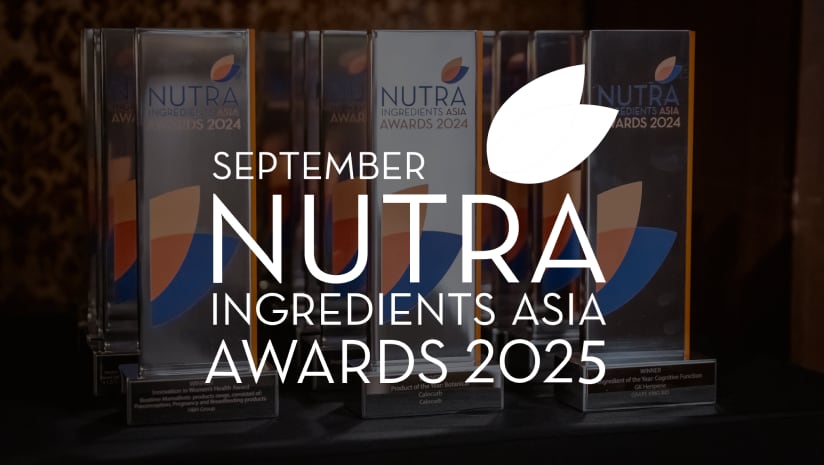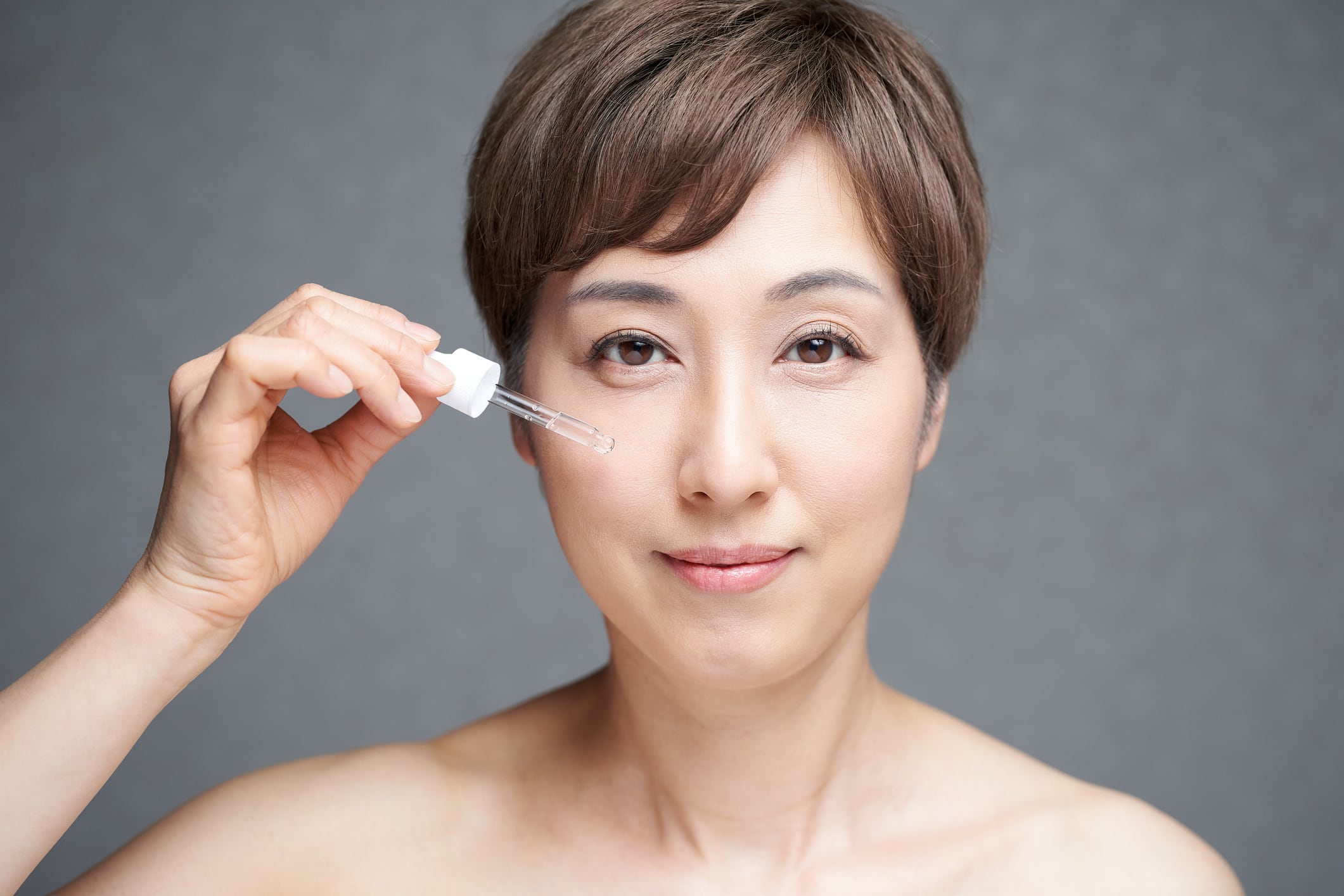Chinese scientist Professor Rao Yi published an article on his social media account on June 5 claiming ergothioneine a “quack remedy”.
“Customers that consume ergothioneine have only demonstrated that they are easily fooled,” said Prof Rao, Dean of Sciences at Peking University (PKU).
He is also a Chair Professor and the Founding Director of the PKU-IDG/McGovern Institute for Brain Research, the Founding Director of PKU-Tsinghua Center for Life Sciences, and the Founding Director of the Chinese Institute for Brain Research at Beijing.
Posting on his Weixin account “Rao Yi Ke Xue” (饶议科学) or “Rao discusses science” in English, his article has been making headlines in China since its publication.
The claims were made under the context that there has been a lack of scientific evidence and regulatory approval around ergothioneine.
Ergothioneine is known as the “longevity vitamin” and has reported benefits for cognitive benefits among the elderly.
“Anything that does not have sufficiently convincing evidence, cannot be approved as ‘real’ pharmaceutical drug, and is quack medicine, can only be disguised as health supplements to fool consumers.
“Ergothioneine is therefore a ‘quack remedy’,” he wrote.
Ergothioneine is not yet recognised by the Chinese authorities for use in health supplements.
However, it has been put up for novel food ingredients application and is under assessment by the regulator as of February 10 this year.

Even before Prof Rao’s claims, the ingredient has been gaining attention in China in recent years. There are also a couple of Chinese companies producing and selling it as a functional ingredient.
Examples include Bloomage whose ingredient is marketed under the name “MitoEGT” and Shanghai EGT Synbio which sells the ingredient under the name “Dr. Ergo Ergothioneine”. Both ingredients are targeted at overseas markets, including the US.
Prof Rao also criticised examples of businessmen blatantly promoting the use of ergothioneine as a supplement.
He did not name any companies but his criticisms - of a advertisement showing a topless man flexing his muscles - were likely directed at Kelun Group’s health subsidiary - also known as Kelun Yongnian Dajiankang (科伦永年大健康)formed last November.
The man featured in the advertisement was the company’s group CEO Liu Ge Xin who was 75 years old at that point.
“Mr Liu is 75 years old - nothing is impossible! Ergothioneine, life is evergreen,” said the advertisement in Chinese.
A day later on June 6, the company responded to Prof Rao’s article, where it defended ergothioneine by citing a series of clinical trials findings.
“As the researcher and marketer of ergothioneine, we highly value the public’s attention on health products and we are now responding with a scientifically-cautious attitude, as well as making the data public.
“This is to clear any misunderstandings and to convey accurate information,“ said the company in its notice.
On the same day, Prof Rao responded to the notice, insisting that health supplements “are not worthy of overt promotion”, explaining how majority of the products marketed in China are out to scam the public.
“If ergothioneine is indeed effectively, then it will surely be approved by the drug regulator...
“It is only because it cannot meet the requirements and therefore, [the company] dared not submit it for [drug authority approval]...” he said, adding that manufacturers should be the ones to prove the ingredient’s efficacy.
Ergothioneine specialist: We share Rao’s concerns
NutraIngredients-Asia spoke with a company specialising in ergothioneine production to find out more about its views on the ongoing debate in China.
The US-based Blue California has been researching on ergothioneine for the past decade and has commercialised its ingredient under the name “ErgoActive”.
Some of the finished product brands using its ingredient include Life Extension.
A more recent brand partner is Longevity Tech, which launched the product FLT Cognition containing ErgoActive as one of the key ingredients.
In an interview, Dr Linda May-Zhang, VP of science & innovation at Blue California said that she shared Prof Rao’s concerns on how the supplement sector has to be backed by science.
“We at Blue California are a USA-based company that has specialised in developing and manufacturing ErgoActive ergothionine for over 10 years. We take the conversations seriously and we welcome thoughtful dialogue about ergothionine.
“We do share Prof Rao Yi’s concerns and we at Blue California share the same principles underlying his concerns.
“Even though he may seem to have made a very strong claim that ergothionine is a quack remedy, the whole reason behind it is because he believes that the science is not there yet to potentially meet the marketing hype that we at Blue California do not really know what is being claimed in China.
“However, we do share the principle in that if we as the industry is going to market health products, it has to be backed by science first before marketing. We want to make that clear and we actually very much appreciate his article,” she said.
In this regard, the company, while advancing science and commercialisation of ergothioneine with the long-term vision that it is good for healthy ageing, it is also selective of the brands that it partners with.
“Our partnerships with consumer brands are very selective and it is mutually selective. For every consumer brand that we work with, we have to go through a screening process, and it’s a mutual screening process to determine fit.”
There were instances where the screening process has turned some brands away, especially those that wanted to ride on the hype around ergothioneine, she said.
For instance, the company has received queries from brands that wanted to position ergothioneine as a cognitive enhancer for energy drinks targeting young adults.
However, the existing knowledge around ergothioneine is around its use in older people for supporting cognitive function.

“Our comment is that the ingredient is for healthy ageing, because if you look at the science, it’s all looking at the older people - to help support cognitive function in the long run.
“There is no evidence to support it as some kind of gamer nootropic.
“This is why we do take the time to do due diligence in terms of determining fit and the brands choose us too. It’s a mutual partnership because we really think that ergothioneine has great potential.”
At least four clinical trials so far
There are at least four clinical trials conducted on ergothioneine so far, with findings of three published in scientific journals.
One of the studies, published in the journal Journal of Alzheimer’s Disease last November, was led by researchers from the National University of Singapore.
The year-long pilot study - a double-blinded, randomised, and placebo-controlled trial -involved 19 adults aged 60 or above with mild cognitive impairment.
They were randomised to receive either ergothioneine at 25 mg per capsule or a placebo, taken three times a week for a year.
Their whole blood profile, markers of renal and liver functions, neurocognitive performance, plasma levels of ergothioneine and its metabolites, and plasma biomarkers related to neurodegeneration were measured across the study.
Findings showed that ergothioneine intake did not alter clinical safety markers, showing that it is safe for human consumption.
Subjects receiving ergothioneine also demonstrated improved performance in assessment of learning ability, but was not seen in the placebo group.
“Our results add to existing data that ergothioneine is safe for extended consumption and may hold the potential to delay cognitive decline in elderly adults,” the researchers concluded.
Another clinical trial was conducted by Japanese researchers and published in the Journal of Functional Foods in August 2022.
A total of 100 people with reported high anxiety and sleep complaints were randomised to take either 20mg of ergothioneine marketed as Ergoneine or placebo per day for four weeks.
Using a questionnaire survey, it was reported that ergothioneine supplementation has significantly ameliorated sleeping difficulties.
Electroencephalograph measurements also showed that ingesting ergothioneine has resulted in a significant improvement in objective sleep quality.
Another 12-week trial, also conducted by Japanese researchers, reported that ergothioneine supplementation has led to a significant increase in skin moisture content at the eighth and 12 weeks compared with baseline.
Dr May-Zhang said that Blue California had conducted a clinical trial on ergothioneine and cognitive function, with findings submitted for peer review.
The trial examined the supplementation of ergothioneine for four months at 10mg or 25mg in healthy older subjects with subjective memory complaints.
Findings showed that it could improve subjective memory and sleep initiation as compared to baseline levels and the placebo group, said Dr May-Zhang.
“Ergothioneine is known as a longevity vitamin and that means that if you have a deficiency or when it’s low in your diet, you don’t immediately feel like you have a disease.
“It is unlike vitamin C when deficiency can manifest as scurvy. For ergothioneine, it is hypothesised that in the long term, a deficiency is not good for ageing and could increase the risk for age-related conditions like neuro- degenerative conditions, frailty, and cardiovascular conditions,” she explained.
It is also because of the sheer amount of time to prove its benefits for health that companies may become less likely to invest in researching on this molecule, she said.
“It takes a long time to be able to prove that ergothioneine is important for health. And because it takes a long time, companies are less likely to invest in this molecule.
“But Blue California has been investing in it for quite a bit of time because we share the sentiment that it can be important, we are taking that responsibility to produce data along with other academic investigators.”
Regulatory status
Blue California is said to be the first company to receive US FDA-reviewed Generally Recognised as Safe (GRAS) status for its ErgoActive ergothioneine back in 2019.
“Our safety dossier was not only self-affirmed GRAS, but was also submitted to the US FDA and the agency submitted a ‘no questions’ letter.
“This means that they had no objections to our GRAS dossier for food, beverage and supplement indications within a defined dietary intake limit.”
Elsewhere, China-based Bloomage’s MitoEGT has been approved as a novel food safe for use by the European Food Safety Authority (EFSA) and has also achieved self-affirmed GRAS in the US.
Bloomage told us earlier that it will be focusing on the US market and China’s cross-border e-commerce (CBEC) for this particular ingredient.
Shanghai EGT Synbio, on the other hand, has also received a ‘no questions’ letter from the US FDA for its GRAS notification for its ingredient Dr. Ergo Ergothioneine.





